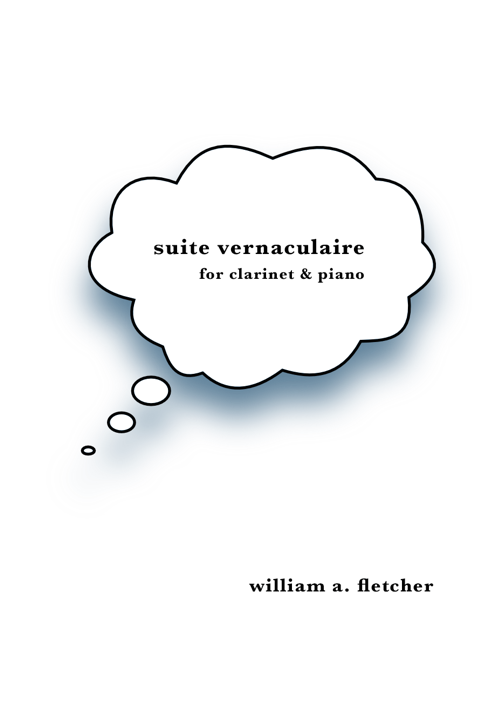Suite Vernaculaire (2023) for clarinet & piano
for Stephanie Ratté Jenkins
1. A Ride Home
2. Für Eliz
3. Astor asks Darius to Dance
4. Triste
5. Saturday Mornings
Originally written for Clarinet and Piano, I was having so much fun I decided to orchestrate…
Throughout music history, composers have been inspired by, and freely borrowed from, the popular and folk traditions they were surrounded by. Bach had his dance-inspired suites, Mozart his minuets, Strauss his waltzes. Schubert was the Ed Sheeran of his day.
Even in modern times, Stravinsky’s Petrushka and Rite of Spring are full of traditional folk tunes. Milhaud used jazz in his La création du monde and wrote piano pieces inspired by music he loved from his stay in Brazil. Mahler quoted Jewish tunes and marches he heard in the town square where he spent his boyhood. Copland’s Piano Blues, El Salon Mexico and Billy the Kid. Glass’ Symphonies based on Brian Eno’s albums. I could go on.
This is the spirit that informs “Suite Vernaculaire”.
It began as just playful experimentation, combining aspects of pop music, such as form or harmonic progression, with “classical” language and conventions. The more I wrote, the more fun I had.
A Ride Home is a trope based on a song by one of my favorite groups, The Staves. It gains its title from a line in the song “Best Friend” and expands on two of its motives. Its form is a variation on common pop song formulae: verse-verse-chorus, verse-verse-chorus, slow outro.
Für Eliz is dedicated to a well-loved friend from my college days: Liz Thompson. She was bright and funny and sweet. She met an unexpected and sad end before our senior year. The piece is elegiac, yes, and deceptively simple. But there are also nods to her lively spirit and I could not let the piece end on a sad note. Re: the technical aspect, I purposely limited myself to three voices in the piano, the clarinet being the fourth.
About Astor asks Darius to Dance: That would be Astor Piazzolla, known and revered for his tangos (another composer basing music on his popular culture!) and Darius Milhaud, who was fond of writing in two keys simultaneously. It is a conversation between the two and follows a definite narrative wherein each character is identified by their compositional proclivities. (A clue to his response in the final off-kilter waltz, which combines their themes.)
Triste is a ballad-like piece which grew from the idea that I could base an accompaniment almost exclusively on harmony, without relying on any rhythmic devices for drive; sort of the antithesis of rock ’n’ roll. The melody mostly avoids the notes in the harmony that accompanies it. It’s an attempt to write a long-lined melody, inspired by Mozart’s Clarinet Quintet and the second movement of Ravel’s G major Piano Concerto.
Saturday Mornings owes its being to some conventions of cartoon music, specifically drawing inspiration from Elfman, with a language influenced by Bernstein. Its harmonic and structural underpinning lies in blues and jazz. I challenged myself to make it swing without actually utilizing swing rhythm. It was also a chance to experiment with limited harmonic and melodic resources, to see if I could keep it concise, yet also interesting; the piece is based exclusively on the manipulation of just two contrasting ideas.


